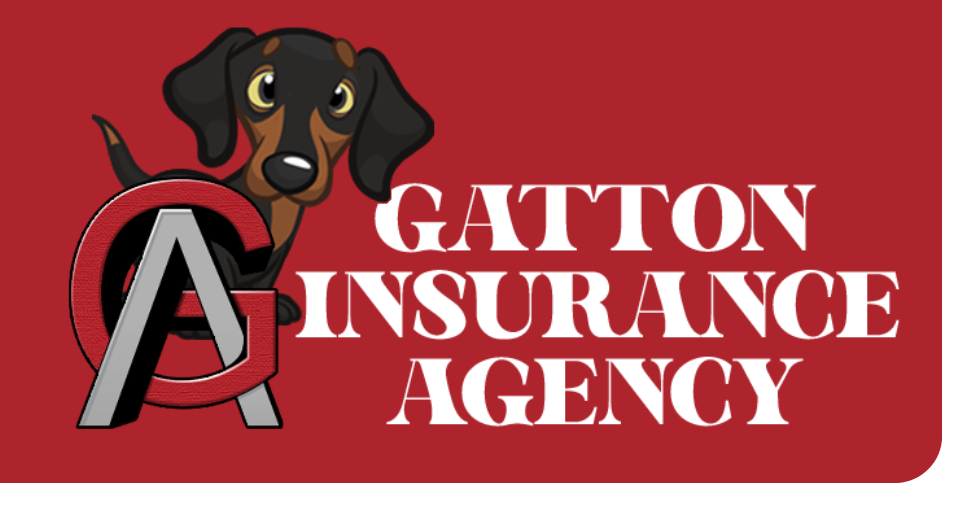Introduction to Flood Insurance
Flood insurance is a specialized financial product designed to provide coverage for homeowners against losses sustained due to flooding. In Indiana, where geographical factors can make certain areas prone to water intrusion, understanding flood insurance becomes essential for property owners. Standard homeowners insurance policies typically do not cover flood-related damage, making it crucial for residents in flood-prone regions to seek dedicated coverage.
The significance of flood insurance stems from the unpredictable nature of flooding events. These may arise from heavy rainfall, rapid snowmelt, or even poorly managed drainage systems. Homeowners who reside near rivers, lakes, or in low-lying areas are often particularly vulnerable and should consider obtaining flood insurance from The Gatton Agency or other reputable providers. This coverage not only protects physical structures but also helps safeguard personal belongings and invaluable possessions.
For many residents in areas susceptible to flooding, the risk it poses can lead to substantial financial implications. Without adequate insurance coverage, the expenses incurred from flood damage can quickly accumulate, potentially leading to overwhelming out-of-pocket costs. Flood insurance serves as a critical safeguard, enabling homeowners to receive financial assistance in the wake of a flood event. In particular, policies can cover repairs to the structure of the home, replacement costs for damaged personal property, and living expenses accrued while the dwelling is being repaired.
Understanding the types of properties typically affected by flooding is equally essential. Residential homes, businesses, and even rental properties can sustain severe damage. Therefore, obtaining flood insurance is not only a proactive measure but also a prudent financial strategy for Indiana homeowners. Ensuring adequate coverage can significantly lessen the financial burden and stress associated with flood recovery efforts.
The Unique Flood Risks in Indiana
Indiana is no stranger to floods, as the state experiences a variety of unique flood risks that can significantly impact homeowners. The combination of heavy rainfall, agricultural runoff, and river flooding creates a complex hydrological environment that places many Indiana residents at risk for water damage and loss. According to the National Weather Service, Indiana has averaged approximately 20 major flood events per year, underscoring the importance of being prepared for these potential disasters.
Heavy rainfall contributes significantly to flooding conditions in Indiana. The state often observes intense storms, particularly during the summer months when thunderstorms and tropical systems can lead to flash floods. These incidents can occur rapidly, with water levels rising within minutes, which can catch homeowners off guard. Furthermore, Indiana’s flat topography can exacerbate flooding, as water tends to accumulate rather than drain efficiently. In fact, historical data indicate that certain areas of Indiana are prone to flooding every few years, increasing the demand for insurance coverage that protects against such events.
Agricultural runoff is another factor that contributes to flooding in Indiana. The state has a substantial agricultural industry, which can lead to increased water flow during rainfall. Runoff from fields can overwhelm drainage systems and lead to localized flooding, particularly in rural areas. Moreover, river flooding poses a considerable risk for residents living near major waterways such as the Wabash River and White River, which can overflow their banks following prolonged rainfall or rapid snowmelt.
With these factors in mind, it is crucial for Indiana homeowners to understand the specific flood risks they face. Obtaining adequate flood insurance coverage from reputable providers like The Gatton Agency can provide a safety net against the devastating effects of flooding, ensuring that homeowners can recover and rebuild effectively after a disaster.
Types of Flood Insurance Policies Available
In Indiana, homeowners have several options when it comes to flood insurance, primarily offered through the National Flood Insurance Program (NFIP) and private flood insurance policies. Understanding each type is crucial for homeowners to make informed decisions about their coverage needs.
The NFIP is a federally backed program created to provide flood insurance to property owners, renters, and businesses in participating communities. This program is managed by the Federal Emergency Management Agency (FEMA) and offers two main policy types: building coverage and contents coverage. Building coverage offers protection for the structure itself, including the foundation, walls, and plumbing, while contents coverage protects personal belongings within the insured property. The NFIP is an attractive option for many homeowners due to its availability and often lower premiums compared to private flood insurance.
On the other hand, private flood insurance is becoming an increasingly popular choice for Indiana homeowners seeking customized coverage options. Unlike NFIP policies, private insurance can provide higher coverage limits and may offer additional protections that the NFIP does not, such as coverage for temporary living expenses if the home becomes uninhabitable due to flooding. These private policies can also be tailored based on the homeowner’s specific risk factors, which may result in more competitive pricing, especially for those living in low-risk areas.
When deciding between NFIP and private flood insurance, factors such as property location, flood zone designation, and individual coverage needs should be carefully considered. Homeowners are encouraged to assess their risk and consult with an insurance expert, such as representatives from The Gatton Agency, to determine the best flood insurance policy for their unique situation. Understanding the differences between these policies is essential in making an educated choice, safeguarding against potential financial loss due to flooding. In conclusion, each type of flood insurance offers distinct advantages, making it vital for homeowners to evaluate their options thoroughly.
How to Determine Your Flood Risk
Assessing your flood risk is a crucial step for homeowners in Indiana who wish to secure their property against potential disasters. Flood risk can vary significantly based on a multitude of factors including location, property characteristics, and the existence of local flood zones. The first step in determining your flood risk is to consult the Federal Emergency Management Agency (FEMA) flood maps. These maps illustrate designated flood zones within your community and provide valuable information that can influence your insurance decisions with The Gatton Agency.
Your location plays a pivotal role in understanding your flood exposure. For instance, areas near rivers, lakes, or coastal regions typically exhibit higher flood risk. Conversely, land situated on elevated ground may experience a lower risk profile. Additionally, certain municipalities in Indiana may have specific floodplain management practices which can help mitigate flood risks. Engaging with local government resources can provide insight into your area’s floodplain management plans and regulations.
Another aspect to consider is the unique characteristics of your property. This includes the elevation of your home, the type of construction materials used, and the drainage features surrounding your property. Homes built at a higher elevation with effective drainage systems may face reduced risks compared to those in lower-lying areas. Homeowners should conduct a thorough assessment of these factors, as they can directly impact insurance needs and premiums.
Moreover, Indiana homeowners can take advantage of additional resources such as local county offices and online tools that provide detailed flood risk evaluations. By understanding these various elements, you can make informed decisions concerning flood insurance with The Gatton Agency and ensure adequate coverage tailored to your specific scenario. Assessing your flood risk comprehensively is the first step toward safeguarding your investment against potential water damage.
The Cost of Flood Insurance in Indiana
Understanding the cost of flood insurance in Indiana is crucial for homeowners, particularly in areas prone to flooding. Premiums for flood insurance can vary significantly depending on several factors. One of the most critical determinants is the property’s location. For example, homes situated in higher-risk flood zones typically face higher premiums due to their increased vulnerability to flood events. Conversely, properties located in lower-risk areas may benefit from reduced rates.
Another significant factor influencing the cost of flood insurance is the elevation of the property. Homes built at a lower elevation than the base flood elevation (BFE) are generally at a greater risk for flooding, resulting in higher insurance premiums. Homeowners should consider consulting with professionals from The Gatton Agency or other local insurers to assess their specific risk level and elevation concerns. Additionally, the history of claims made on the property can further impact rates; homes with a history of flooding incidents may see elevated premiums due to the presumed risk of future floods.
Homeowners seeking to reduce their flood insurance costs can take mitigation steps to potentially lower their premiums. These might include elevating their homes, installing flood vents, or utilizing to flood-resistant materials in renovations. Furthermore, participating in community initiatives aimed at flood risk reduction can yield additional benefits. The National Flood Insurance Program (NFIP) offers various discounts for properties that participate in floodplain management activities and comply with certain building standards.
In conclusion, understanding the multifaceted nature of flood insurance costs in Indiana will empower homeowners to make informed decisions regarding their insurance needs. By evaluating location, elevation, and a property’s claim history, as well as adopting mitigation strategies, homeowners can work towards securing more affordable flood insurance through providers like The Gatton Agency.
Making a Claim on Your Flood Insurance
In the unfortunate event of flooding, it is imperative for homeowners in Indiana to navigate the flood insurance claims process efficiently to ensure the compensation they deserve. Filing a claim can seem daunting; however, understanding the steps involved and the necessary documentation will facilitate this process. Initially, it is crucial to notify your insurance provider, such as The Gatton Agency, as soon as the flood event occurs. Each insurer may have its own specific timelines, but prompt reporting is typically encouraged to avoid delays in processing.
Once you have informed your insurance company, start gathering necessary documentation. This includes comprehensive photographs of the damage, a detailed inventory of affected property, and any receipts or proof of ownership for items that require replacement. It is advisable to create a record of any conversations with your insurance representative, noting dates and key points discussed to maintain clarity throughout the process.
After submitting your claim, your insurance provider will assign an adjuster to assess the damages. Be prepared for the adjuster’s visit by having your documentation readily available and ensuring that the affected areas are accessible. It can also be beneficial to maintain communication with the adjuster for updates on your claim’s status as this will keep the process moving efficiently.
Homeowners should remain vigilant throughout this process to avoid potential pitfalls. One common mistake is underestimating the extent of damages, leading to inadequate claims submissions. Therefore, it is crucial to be thorough in your documentation and not rush through the listing of damages. Being aware of your policy details, including coverage limits and specific exclusions, will also aid in managing expectations during the claims process.
Engaging with professionals from The Gatton Agency can provide additional support, ensuring that your claim is filed correctly and expeditiously. By understanding these procedures, Indiana homeowners can optimize their chances of receiving fair compensation for flood-related damages.
Importance of Regular Policy Review
Regular review of flood insurance policies is crucial for homeowners in Indiana, as various factors can influence the adequacy of coverage over time. As life circumstances change, such as marriage, divorce, the birth of a child, or retirement, it is essential to ensure that your insurance policy reflects these updates. Each of these life events can significantly impact your financial situation and the value of your property, potentially altering the levels of coverage needed.
In addition to personal life changes, homeowners may undertake modifications to their properties, such as remodeling, expanding, or even relocating. These modifications can affect the property’s vulnerability to flooding, which, in turn, dictates the necessary level of flood insurance coverage. For instance, if a homeowner has added a finished basement or converted an attic into a living space, the risk of water damage might increase, necessitating a revision of the existing policy to ensure adequate protection.
Furthermore, the regulatory landscape surrounding flood insurance is subject to change, with updates to zoning laws, floodplain designations, and terms of insurance often influencing what policies provide. In Indiana, homeowners should be aware of any changes made by The Gatton Agency or other local insurance providers that may affect flood insurance availability and regulations. Staying informed about these updates can prevent gaps in coverage that could lead to significant financial burdens in the event of a flood.
Proactively reviewing and adjusting flood insurance policies ensures that homeowners not only comply with regulatory requirements but also safeguard their homes against potential financial risks. Therefore, engaging in regular discussions with insurance agents can provide valuable insights into coverage adequacy and any necessary changes, fostering better management of insurance needs and overall financial health.
Role of Local and State Agencies in Flood Management
In Indiana, local and state agencies play a pivotal role in flood management, working collaboratively to mitigate risks and provide essential support during disaster events. These agencies are responsible for developing and implementing flood control measures, including infrastructure projects such as levees and drainage systems. Furthermore, they monitor weather patterns and waterways, ensuring that residents are kept informed about potential flooding risks and evacuation orders, thereby enhancing public safety.
The Indiana Department of Natural Resources (DNR) and local emergency management agencies are at the forefront of flood preparedness and response efforts. They not only oversee floodplain management activities but also actively engage in community outreach to educate homeowners about the importance of flood insurance. The Gatton Agency, among others, assists in this educational endeavor, emphasizing how obtaining adequate insurance coverage can mitigate financial losses from flooding events. Understanding local flood zones and risk factors allows residents to make informed decisions about their insurance needs.
Additionally, state and local agencies facilitate disaster recovery efforts post-flooding. They collaborate with federal entities, such as the Federal Emergency Management Agency (FEMA), to support affected communities. This partnership enables homeowners to access financial assistance programs to help with rebuilding efforts and recover from damages caused by flooding. It is important for homeowners in Indiana to engage with these agencies not only during times of crisis but also to stay informed about ongoing risk assessment initiatives and mitigation strategies.
By working in tandem with agencies like the DNR and local emergency management, residents can ensure that they are better prepared for flooding situations. Through proactive measures and comprehensive flood insurance policies, homeowners can protect both their properties and finances against the unforeseen impact of floods.
Conclusion and Call to Action
In light of the increasing frequency and severity of flooding events across Indiana, the necessity for homeowners to consider flood insurance cannot be overstated. Flooding can result in extensive property damage and financial loss, which standard homeowners insurance policies may not cover. Therefore, it is vital for Indiana homeowners to understand the unique challenges posed by flood risks specific to their regions. By investing in flood insurance, individuals can safeguard their properties and personal belongings against potential disasters.
Moreover, consulting with insurance professionals, such as those at The Gatton Agency, can provide valuable insights into the different types of coverage available and their significance. Such consultations ensure that homeowners accurately assess their current insurance status and make informed decisions regarding flood insurance options. Given that Indiana is susceptible to seasonal floods, having such insurance can be a game-changer when faced with the aftermath of a flood event.
Homeowners should not delay in reviewing their insurance coverage. Begin by evaluating the flood risks associated with your property, reviewing local flood zone maps, and understanding the specific policies offered. Engaging with reputable insurance providers will help clarify any misconceptions and provide tailored solutions that align with your needs. Take a proactive approach to protect your investment and your peace of mind. Whether you are a first-time homeowner or a long-time resident, now is the time to consider flood insurance seriously—because safeguarding your home against unforeseen disasters is not just sensible; it’s essential.






